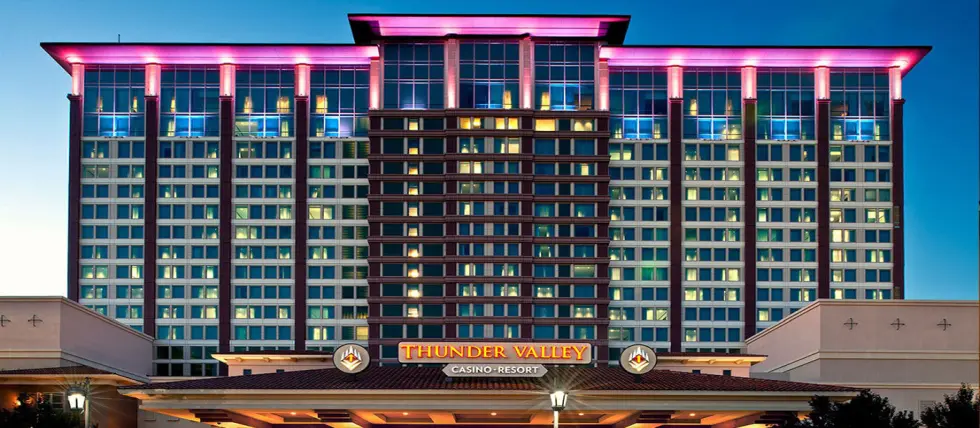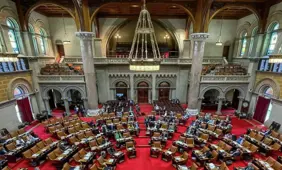California Tribes Face Off over Federal Casino Approval
Indigenous tribes in California are caught in a battle over legal casino gambling in the state. The United Auburn Indian Community (UAIC) has filed a federal lawsuit challenging the U.S. Department of the Interior's recent decision to approve a casino project proposed by the Scotts Valley Band of Pomo Indians in Vallejo, California.

The lawsuit contends that the Department's approval violates several federal statutes, including the Indian Gaming Regulatory Act (IGRA), the National Environmental Policy Act (NEPA), the Indian Reorganization Act (IRA), and the Administrative Procedure Act (APA). UAIC, which operates the Thunder Valley Casino Resort, is seeking judicial review to overturn the decision.
Related: California Tribes Bring Lawsuit Against Card Rooms in the StateAccording to UAIC, the Department of the Interior's approval was expedited and politically driven, occurring just ten days before the end of the Biden Administration. The lawsuit alleges that the Department did not adequately consult other tribal governments that could be impacted by the proposed casino, thereby breaching long-standing federal consultation requirements. The Yocha Dehe Wintun Nation and the Kletsel Dehe Wintun Nation have also filed a separate but related legal challenge, echoing concerns about the approval process and its legal foundation.
The dispute surrounding the Scotts Valley Band's casino proposal has spanned decades. The tribe, originally from Lake County, California, has sought to develop an off-reservation casino since 1991.
Past attempts were denied, including proposals in Richmond and Vallejo, which were rejected by the Obama and Trump Administrations, respectively. In early 2024, following a lawsuit by Scotts Valley, a federal judge ordered the Department of the Interior to revisit the application. UAIC argues that instead of conducting a proper review, the Department approved the project on January 10, 2025, without meeting legal obligations.
The proposed development is a 615,000 square-foot casino complex located at a busy junction of Interstate 80 and Highway 37, near sensitive habitat and close to the San Francisco Bay Area. This urban location, far removed from the Scotts Valley Band's ancestral lands, raises multiple issues related to environmental degradation, cultural encroachment, increased traffic and the precedent of permitting large-scale gaming projects in densely populated areas without historical justification.
More Business News
Federal Decision Encroaches on Tribal Integrity
UAIC maintains that the casino's approval undermines federal gaming regulations designed to protect tribal integrity. Chairman John L. Williams stated that the decision contradicts the principles of the Indian Gaming Regulatory Act and jeopardizes tribes that have adhered to legal standards. The tribe contends that such approvals permit opportunistic proposals that disregard tribal history and existing regulatory frameworks, thereby harming responsible tribal governments across the state and the nation.
Among the legal issues raised, UAIC argues that under IGRA, Scotts Valley failed to establish a substantial historical connection to the Vallejo region—a prerequisite for restored tribes seeking to develop gaming operations on newly acquired trust land. The lawsuit notes that prior applications were rejected on this basis and that the Department's abrupt reversal ignored key evidence contradicting Scotts Valley's claim to the site.
Under NEPA, UAIC contends that the Department of the Interior failed to conduct a full Environmental Impact Statement, choosing instead to rely on a less rigorous Environmental Assessment. This decision bypassed critical steps such as public hearings and detailed reviews, despite the scale of the project and its potential impact on natural resources, local traffic, and surrounding communities. The Department's conclusion that the project would have no significant environmental impact is described as unsupported and procedurally flawed.
The lawsuit also cites violations of the IRA, asserting that the Department did not apply the appropriate level of scrutiny for taking land into trust for off-reservation use. The site's location, nearly 100 miles from the Scotts Valley Band's homeland, increases the legal threshold for approval under federal guidelines. UAIC claims that this distance was not properly accounted for, nor were conflicts with local land use laws adequately evaluated.
Furthermore, the UAIC lawsuit claims that the Department's approval violated the Administrative Procedure Act by being arbitrary and capricious. It argues that the decision ignored prior rejections, lacked reasoned analysis, and represented a clear departure from established policy. UAIC also asserts that it repeatedly attempted to submit input and engage in consultation, as required by federal policy, but was excluded from the review process along with other affected tribes.
UAIC has retained the law firm Keker, Van Nest & Peters LLP to lead its legal effort. The firm has previously represented the tribe successfully in other high-profile legal matters. Through this lawsuit, UAIC seeks to invalidate the Department of the Interior's approval and compel a lawful, comprehensive review of the Scotts Valley Band of Pomo Indians' application for off-reservation gaming land.
RELATED TOPICS: Business
Most Read
Must Read
 Interviews
Interviews
Sweepstakes Casinos: Thriving in an Ever-Changing Industry – Interview with Attorney Stephen C. Piepgrass
Feb 17, 2025 Interviews
Interviews








Review this New Post
Leave a Comment
User Comments
Comments for California Tribes Face Off over Federal Casino Approval